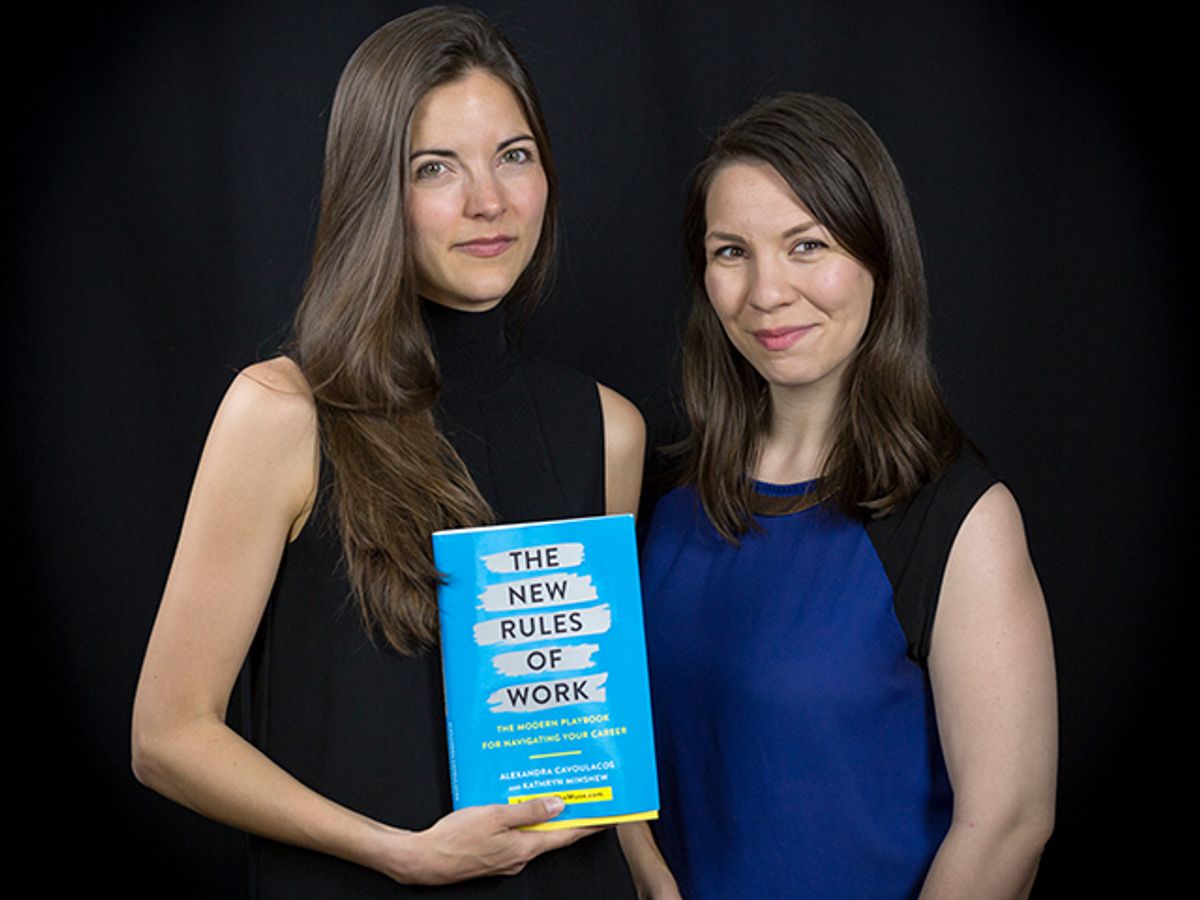What strategies can both men and women employ to take advantage of new directions in the evolving economy? Kathryn Minshew and Alex Cavoulacos, co-founders of the Muse and co-authors of "The New Rules of Work” joined "Salon Talks" to discuss this at a time when the job market is undergoing so many shifts.
"There's a lot of opportunity for both men and women," Cavoulacos said. "The transition is really hard particularly for people who have been in one field for a really long time," she said. "So in certain parts of the country there’s certainly a lot of men who are being particularly hit as factories are shutting down. But women may also be hit in other ways as schools are being shut down in certain districts or things like that . . . industries that might be a little more gendered."
"One of the interesting things in the ways we think about this new world of work is people were able to pick a career, major in something, go in and stay for 20 or 30 years and thought there would be a pension at the end, thought that as long as they worked hard, everything would be fine. It's no longer sort of something you can rely on and you can have guaranteed."
What's key, according to the authors, is asking the question, What do I want to do next? Yet that's a question many people haven't asked themselves in years.
To succeed, networking becomes key, including how to counteract unconscious gender bias. Minshew acknowledged that data has shown that if a women tries to negotiate she's perceived as aggressive whereas for a man it is expected that he's going to try to negotiate. "Obviously that's incredibly frustrating and something that I think we need to change on a macro level," Minshew said, adding, however, that on an individual level there are strategies people can take to find a way of negotiating that feels comfortable.
"For example, some of that bias disappears when women are perceived to be negotiating on behalf of someone else," Minshew said. Plus being able to marshal data that highlights "exactly the point you’re negotiating towards makes it a little less about what I want and more about something that's grounded in fact." That process is not easy or fair, she acknowledged.
“We are trying to both point out when the playing field is tilted but then also give people strategies to make the best out of the hand that they’re dealt,” Minshew added. Watch their conversation to glean more tips about how to deftly maneuver in the shifting marketplace.



Shares